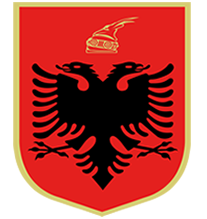Albania: Government
Key Figures
- Chief of State:
- President Bajram Begaj
- Head of Government:
- Prime Minister Edi Rama
Overview
- Government Name:
- Republic of Albania
- Constitution:
- Adopted: 1998; Defines Albania as a parliamentary republic. The constitution is divided into 18 parts which also sanction people's sovereignty and fundamental rights of the citizens. This is the most recent of many Albanian constitutions due to political instability.
- Government Type:
- Parliamentary Democracy

Index of Economic Freedom
Country Risk Rating
Government Branches
| Main Powers | Election Process | Election Cycle 1 | |
|---|---|---|---|
| Executive | The president has the power to guarantee observation of the constitution and all laws, act as commander in chief, exercise the duties of the assembly of the Republic of Albania when the assembly is not currently in session, and has the ability to appoint the prime minister. The prime minister precedes over the council of ministers as chairman. |
The president is elected by the people's assembly. The prime minister is chosen by the leading party, or coalition, in parliament and is approved by presidential decree. |
5 years |
| Judicial | The constitutional court interprets the constitution, determines whether laws are unconstitutional, and resolves disagreements between local and federal authorities. The court of cassation serves as the highest court of Albania. |
Parliament appoints the seven members of the court of cassation and five of the nine judges on the constitutional court, with the rest appointed by the president. A supreme judicial council appoints all other judges. In 1992, the supreme judicial council began to remove judges who had served under the former communist regime. |
Constitutional Court: maximum of 9-year terms; Court of Cassation: maximum of 7-year terms |
| Legislative | The council of ministers carries out foreign and domestic policies and also directs and controls the activities of the ministries and other state organs. The parliament must approve legislation proposed by cabinet members in order to be passed. |
The council of ministers is nominated by the president on the basis of the prime minister's recommendations. Final approval must be given by the people's assembly. Parliament has 140 members who are elected through a closed-list proportional representation system. There are 12 multi-member constituencies corresponding to the country's 12 administrative regions. Within any constituency, parties must meet a threshold of 5%. |
4 years |
Regional Trade Blocs
International Organization Participation [2]
Environmental Agreements [3]
Tax Information [2]
- Tax Authority:
- General Directorate of Taxes
- Tax Name:
- VAT
Sources:
- ElectionGuide http://www.electionguide.org/
- EY, http://www.ey.com
- CIA World Factbook, https://www.cia.gov/the-world-factbook/
- U.S. Bilateral Relations Fact Sheets http://www.state.gov/r/pa/ei/bgn/


